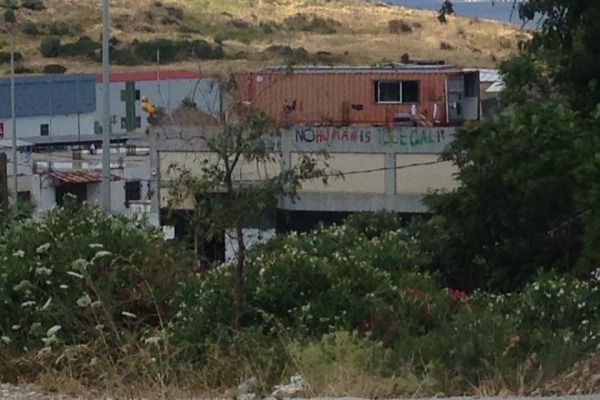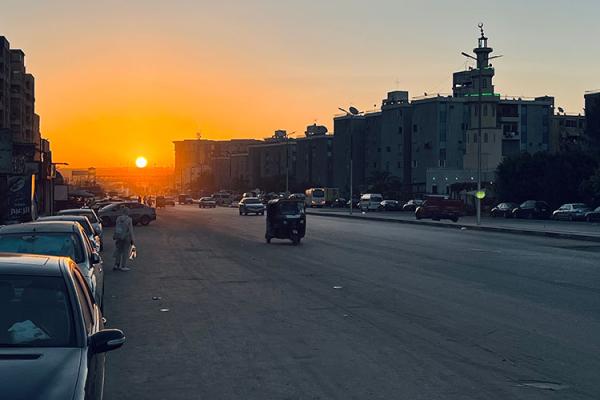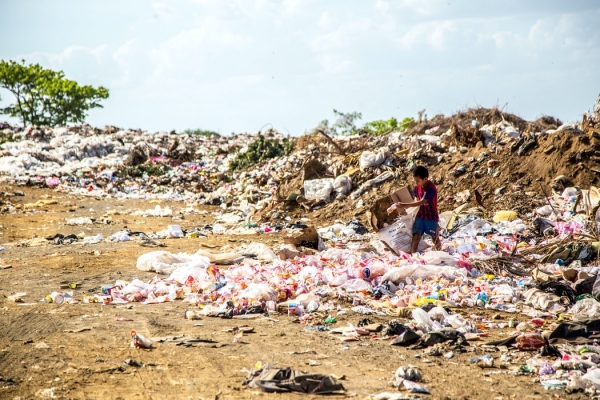Bringing Hope and Education to Refugees on Lesvos
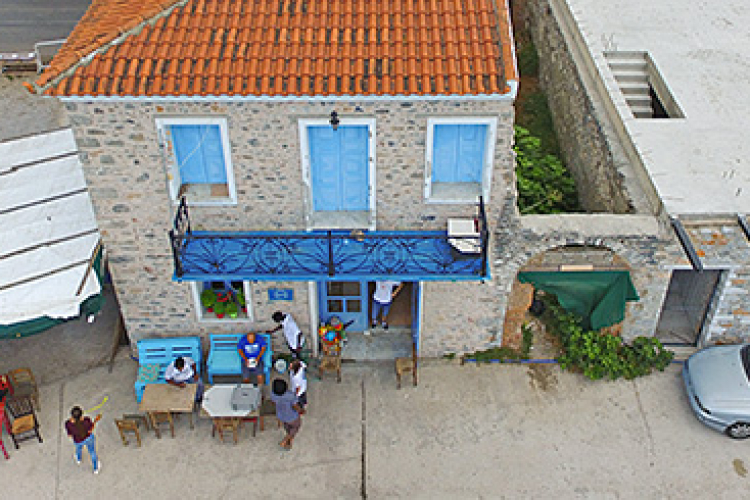
“It’s hard to wrap up the summer in a few words,” Liz Steggall-Lewis said of the short-term service among persons of concern (the UN’s term for refugees) on the Greek island of Lesvos. It’s hard to take in the immense human suffering in Camp Moria, with 8,000 people living in an area the size of a Walmart Supercenter.
Shelter types range from shipping containers to tents. A newly arrived family may have a tent the size of one that two children might use for a backyard sleepover. Families housed in larger tents often have to make room for other families to join them.
The volunteers with Beyond Borders brought hope, encouragement, and education to these people, and made a memorable experience for both the team and the people they met.
As an educational project, Camp Moria presents an immense opportunity to TeachBeyond. There currently are 400 children in education programs operated by various NGOs, but there are 1,600 school-age children in the camp. The ones who are going to “school” practice soft skills like cooperation and learning to stand in line and sing songs, but most of the programs lack a consistent, ongoing academic curriculum.
Partnering with Open Schools for CurriculumLiz, who is coordinator of Beyond Borders, TeachBeyond’s educational ministry for refugees, developed a partnership with Open Schools Worldwide. This is a Christian organization that takes education to underserved children to improve the performance of children in reading, writing, spelling and basic mathematics. They also work on health, hygiene, and social skills. Its director, Dr. Alan McIlhenny, came to Lesvos to help the Beyond Borders team adapt the curriculum to this situation.
A noteworthy feature of the Open Schools program is that it encourages the refugees to be their children’s teachers. Open Schools provides a detailed curriculum with step-by-step instructions that have been contextualized to meet the needs of children living in unstable, under-resourced communities of extreme poverty.
Giving adult community members responsibility for teaching their children gives them purpose and dignity in an environment where both are scarce.
“Education is very important,” Liz says. “They are calling children in refugee camps the lost generation. All they see in the camp is violence and hopelessness.”
God's Plans Work Out BestAs sometimes happens with short-term mission trips, arrangements with a local group fell through and the team leaders had three weeks to revise their plans. “We were going to have a partnership with an NGO that would provide two classrooms for our program. Our planning for the summer hinged on this,” Liz says.
She describes the result as “having the privilege of seeing God work out every moment of every day. We had to let God work to open doors. That’s usually the best way to do it. His plans are better than our plans.”
“The volunteers did a great job of adapting,” she continues. “Their attitude was, ‘We are here and will serve where God wants us.’ We had two children’s programs and an English program for adults. It was pretty phenomenal how it came together. God ordained the work we were to do there. It started with a gathering of refugees on the first night we were there that almost seemed like a block party. Helen Spencer told the story of the shepherd and the lost sheep, and had both the children and adults captivated by the story.”
Memorable Birthday PartyThe most memorable event Liz experienced happened across from the hotel where the team was staying. The UNHCR moved some of the most vulnerable families into rented rooms in this community after riots had erupted in the camp.
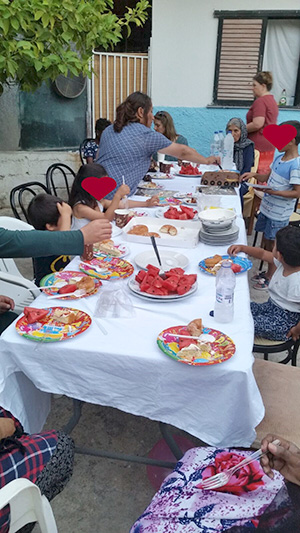 Even though there were different countries and languages represented, they all cooperated for this birthday party.
Even though there were different countries and languages represented, they all cooperated for this birthday party.
“I visited a mother who said she noticed that the hotel owner had a birthday party for his son the previous night, and that one of her sons had a birthday a week ago,” Liz recalls. “I could see she looked sad when she said she was unable to give him a party. Then she mentioned that her other son had a birthday coming up soon. We talked about birthdays together and decided to throw a birthday party for all 10 children and their families living in this accommodation.
“The mother and father organized everything. The group of refugees cleaned a shared courtyard, set up tables and chairs, brought out plates and bought some watermelon. Our team brought a cake and had a present for each child. All the children dressed up for the party.
“It was their community that came together to give the party for the children. Even though there were different countries and languages represented, they all cooperated for this event. They took pictures of the families and pictures of the children pretending to cut the one cake. We sang Happy Birthday to each child as he or she stood beside the cake. There was such joy in that space. I could see that their lives had been transported out of their current situation to a place of hope. In the future, the children will have a happy memory to think back on.”
Through building relationships like this, Beyond Borders embraces the opportunities to share God’s love. People of concern value consistency in these relationships when their world is so unstable. Beyond Borders team members are limited to a three-month stay on a tourist visa unless they are a citizen of an EU country. “We are building a second team so they can rotate every three months and keep the programs going,” Liz explains.
“I didn’t want to leave,” Liz says. “In the three and a half weeks I was there it felt like we accomplished three months of work. In terms of networking and relationship building I feel we accomplished three years of work.”
Click here to give financially to Beyond Borders.

